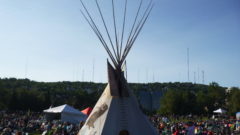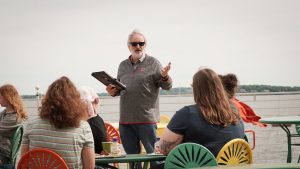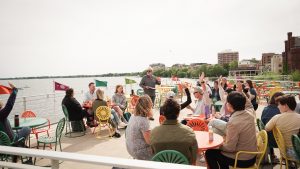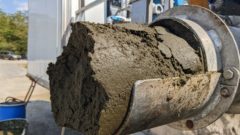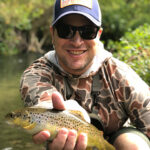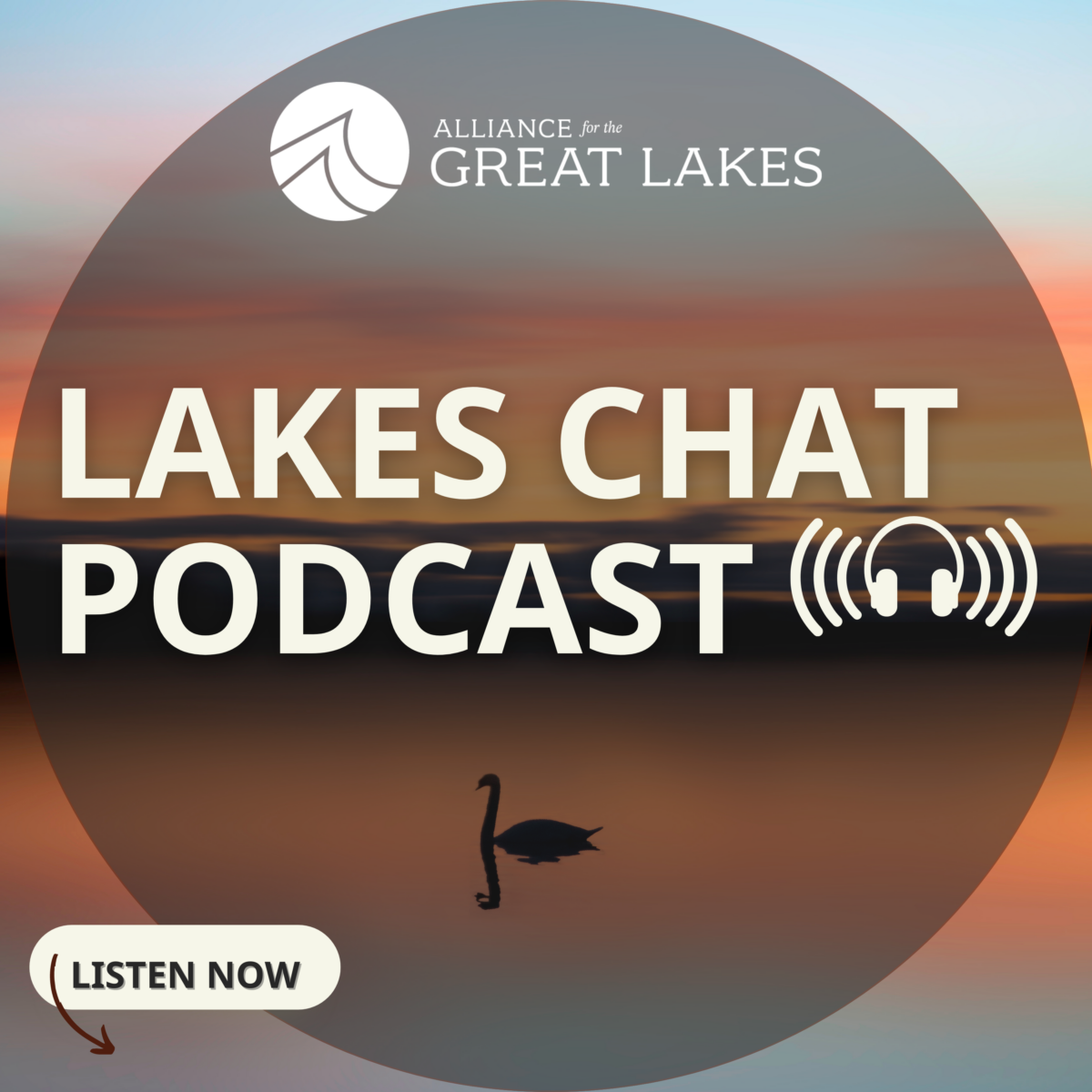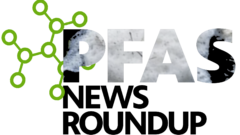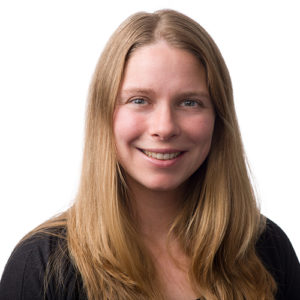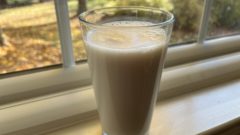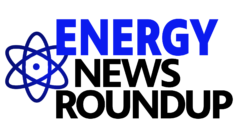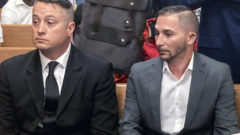Aquatic invasive species staff member recognized as Lake Leader
Scott McComb, Wisconsin Sea Grant’s Southeast Wisconsin aquatic invasive species outreach specialist, recently completed training through the Wisconsin Lake Leaders Institute, culminating in an October 14 graduation event.
McComb was part of the fourteenth class of graduates to learn about Wisconsin’s unique lake resources through a program organized by the Wisconsin Lakes Partnership.
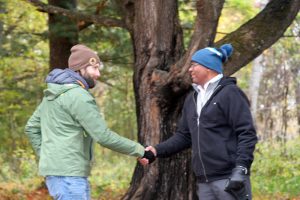
Wisconsin DNR Secretary Preston Cole (right) congratulates Scott McComb on his completion of the Wisconsin Lake Leaders Institute. (submitted photo)
He was recognized by Wisconsin Department of Natural Resources (DNR) Secretary Preston Cole, University of Wisconsin-Stevens Point College of Natural Resources Dean Brian Sloss and Wisconsin Lakes board members David Zelinger and Nick Homan.
Through a series of in-person seminars and online meetings, McComb gained a deeper understanding of lake ecology and how to work with state and local governments to ensure that lakes get the attention they need. The program combines readings, discussions, field experiences and more to develop lake management and leadership skills.
Commented McComb, who joined Wisconsin Sea Grant in 2021 and is based at the Kenosha County Extension Office, “Lake Leaders was a unique opportunity to explore the intersection of people and water from cultural, scientific and legal perspectives while also providing opportunities to reflect on my own connection to lakes in Wisconsin.” He holds a bachelor’s degree in geography and a master’s degree in bioregional planning.
“The individuals who participate in this program are true leaders who have stepped forward to protect our lakes for future generations,” said Sara Windjue, leadership and capacity development specialist for the UW-Stevens Point Extension Lakes Program. “They are committed to developing partnerships and facilitating the learning of others in order to build capacity that will ensure the protection and restoration of thousands of lakes across Wisconsin.”
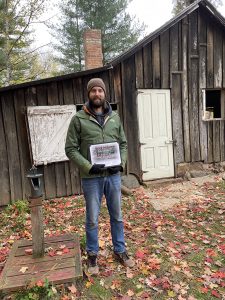
McComb shows off his certificate of completion. (submitted photo)
“Lake Leaders was a wonderful opportunity to learn more about Wisconsin lakes and to connect with other lake-minded folks from around the state,” added McComb. He is committed to “honoring the waters of Wisconsin by learning its lessons, sharing its stories and listening to all” as he works prevent the spread of aquatic invasive species in Southeast Wisconsin.
The Wisconsin Lake Leaders Institute draws participants from across the state to take part in a series of three two-day seminars. Participants demonstrate their commitment to protecting the integrity of the lakes in Wisconsin with an investment of their time and a modest registration cost to cover meals and lodging.
The Wisconsin Lakes Partnership is made up of the Extension Lakes Program at UW-Stevens Point, the Wisconsin DNR and the citizen advocacy organization Wisconsin Lakes. Recognizing a need for new and ongoing leadership in the management of Wisconsin’s lakes, they created the Wisconsin Lake Leaders Institute in 1996. Its mission is to assist citizen lake leaders to develop both their technical and people skills, ultimately enriching their communities and the waters within them.
This year’s graduation ceremony took place at the Aldo Leopold Shack near Baraboo, a fitting setting for celebrating the 22 new Lake Leaders’ accomplishments and looking ahead to their conservation journeys.
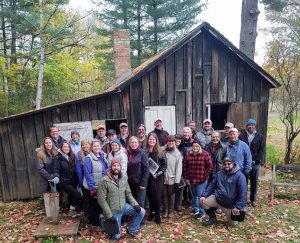
McComb, kneeling in front, poses with fellow members of his cohort near the shack of famed naturalist and conservationist Aldo Leopold. (submitted photo)
Since its inception, over 300 participants have graduated from the institute and made significant contributions in addressing a diverse array of water management challenges. The program has attracted national attention as an effective strategy for enhancing lake stewardship and protection.
For more information about the program, contact McComb, reach out to the Extension Lakes program staff or visit the UW-Stevens Point Extension Lakes website.
The post Aquatic invasive species staff member recognized as Lake Leader first appeared on Wisconsin Sea Grant.News Releases | Wisconsin Sea Grant
News Releases | Wisconsin Sea Grant
https://www.seagrant.wisc.edu/news/aquatic-invasive-species-staff-member-recognized-as-lake-leader/?utm_source=rss&utm_medium=rss&utm_campaign=aquatic-invasive-species-staff-member-recognized-as-lake-leader

